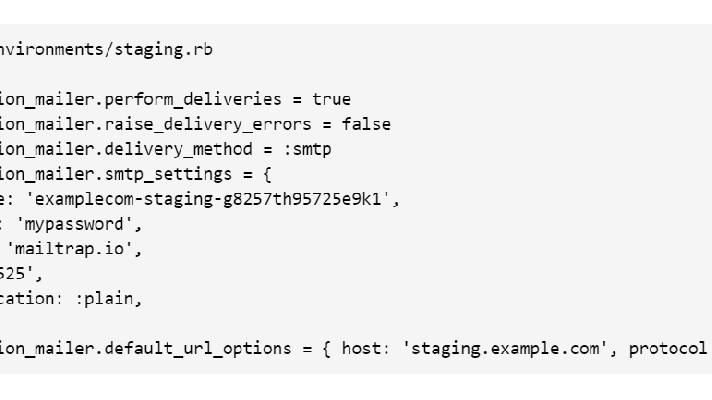Spiderman’s Extension Methods

Spiderman is on duty every day (except Sunday, maybe). The thing is that he finds time to develop Ruby-on-Rails applications. So, I have a friend of a friend with a friend knowing some random person who asked Spiderman about his favourite core extension methods. The first thing Spiderman told: ‘Dude, call them Hardcore extension methods.’
So, let us see the list of coolest Hardcore extension methods.
extract_options!(), Array
The extract_options!(), Array method removes the last element of an array if it’s a hash, and returns it. If there’s no such element, it will return an empty hash.
1 2 3 4 5 6 | <span class="k">def</span> <span class="nf">spin_the_web</span><span class="p">(</span><span class="o">*</span><span class="n">args</span><span class="p">)</span> <span class="n">args</span><span class="p">.</span><span class="nf">extract_options!</span> <span class="k">end</span> <span class="n">spin_the_web</span><span class="p">(</span><span class="ss">:all_around</span><span class="p">)</span> <span class="c1"># => {}</span> <span class="n">spin_the_web</span><span class="p">(</span><span class="ss">:all_around</span><span class="p">,</span> <span class="ss">stickiness: </span><span class="o">=></span> <span class="ss">:average</span><span class="p">)</span> <span class="c1"># => {:stickiness=>:average}</span> |
It can be used, for example, in methods with a variable number of arguments and in its declaration, so you can easily separate an array of parameters and options hash.
try(*args, &block), Object
So, you want to check if there’s an instance variable and call a method on it. Without the try(*args, &block), Object method, it looks as shown below.
1 | <span class="vi">@random_dude</span> <span class="o">&&</span> <span class="vi">@random_dude</span><span class="p">.</span><span class="nf">spiderman?</span> |
That code is long enough and occurs too often, so there’s a shortcut presented below.
1 | <span class="vi">@random_dude</span><span class="p">.</span><span class="nf">try</span><span class="p">(</span><span class="ss">:spiderman?</span><span class="p">)</span> |
It will fail with NoMethodError if there’s no such method (unless receiver is nil). You can pass arguments to the method after its name (just like you do for the public_send method.)
delegate(*methods), Class
Let’s take a look at the delegate(*methods), Class method, and let’s start with an example.
1 2 3 4 5 6 7 8 9 10 11 12 13 14 15 16 | <span class="k">class</span> <span class="nc">MaryJane</span> <span class="k">def</span> <span class="nf">cook_soup</span> <span class="s1">'Mary is cooking'</span> <span class="k">end</span> <span class="k">end</span> <span class="k">class</span> <span class="nc">Spiderman</span> <span class="k">def</span> <span class="nf">initialize</span> <span class="vi">@mary_jane</span> <span class="o">=</span> <span class="no">MaryJane</span><span class="p">.</span><span class="nf">new</span> <span class="k">end</span> <span class="n">delegate</span> <span class="ss">:cook_soup</span><span class="p">,</span> <span class="ss">to: :@mary_jane</span> <span class="k">end</span> <span class="n">spiderman</span> <span class="o">=</span> <span class="no">Spiderman</span><span class="p">.</span><span class="nf">new</span> <span class="n">spiderman</span><span class="p">.</span><span class="nf">cook_soup</span> <span class="c1"># => "Mary is cooking"</span> |
Well, the example is very straightforward. You can delegate several methods in a single call. The delegation target can be pretty much everything: an instance variable, a class variable, a constant, or a method. There’s no need to be charming like a Spiderman to use this method.
sum(identity = 0, &block), Enumerable
After a hard day, Spiderman needs to calculate the total price of things he ‘expropriated.’ He can do this with the sum(identity = 0, &block), Enumerable method (if he has a PC nearby, of course).
1 | <span class="p">[</span><span class="mi">1</span><span class="p">,</span><span class="mi">2</span><span class="p">,</span><span class="mi">3</span><span class="p">,</span><span class="mi">4</span><span class="p">,</span><span class="mi">5</span><span class="p">].</span><span class="nf">sum</span> <span class="c1"># => 15</span> |
You can also call it with a block (for example, to calculate sum for some attribute).
1 | <span class="vi">@goods_from_the_orphanage</span><span class="p">.</span><span class="nf">sum</span><span class="p">(</span><span class="o">&</span><span class="ss">:price</span><span class="p">)</span> <span class="c1"># => 2000</span> |
diff(another_hash), Hash
You can easily determine difference between superheroes and villains by using the diff(another_hash), Hash method.
1 2 3 4 5 6 7 8 9 10 11 12 13 14 15 | <span class="n">spiderman</span> <span class="o">=</span> <span class="p">{</span> <span class="ss">racist: </span><span class="kp">true</span><span class="p">,</span> <span class="ss">narcissistic: </span><span class="kp">true</span><span class="p">,</span> <span class="ss">robs_the_banks: </span><span class="kp">true</span><span class="p">,</span> <span class="ss">obsessed_with_his_uniqueness: </span><span class="kp">true</span><span class="p">,</span> <span class="ss">wears_glasses: </span><span class="kp">false</span> <span class="p">}</span> <span class="n">dr_octopus</span> <span class="o">=</span> <span class="p">{</span> <span class="ss">racist: </span><span class="kp">true</span><span class="p">,</span> <span class="ss">narcissistic: </span><span class="kp">true</span><span class="p">,</span> <span class="ss">robs_the_banks: </span><span class="kp">true</span><span class="p">,</span> <span class="ss">obsessed_with_his_uniqueness: </span><span class="kp">true</span><span class="p">,</span> <span class="ss">wears_glasses: </span><span class="kp">true</span> <span class="p">}</span> <span class="n">spiderman</span><span class="p">.</span><span class="nf">diff</span><span class="p">(</span><span class="n">dr_octopus</span><span class="p">)</span> <span class="c1"># => {:wears_glasses=>false}</span> |
As you can see, there’s much difference here. So, duplicated key-value pairs do not belong to the result. If there are different values and the same key, the value from the receiver goes to the result. The rest is just merged.
except(*keys), Hash
To get a part of some hash, use the except(*keys), Hash method.
1 2 3 4 5 6 7 | <span class="n">spiderman</span> <span class="o">=</span> <span class="p">{</span> <span class="ss">superpowers: </span><span class="kp">true</span><span class="p">,</span> <span class="ss">latex_costume: </span><span class="kp">true</span><span class="p">,</span> <span class="ss">camera: </span><span class="kp">true</span> <span class="p">}</span> <span class="n">peter_parker</span> <span class="o">=</span> <span class="n">spiderman</span><span class="p">.</span><span class="nf">except</span><span class="p">(</span><span class="ss">:superpowers</span><span class="p">,</span> <span class="ss">:latex_costume</span><span class="p">)</span> <span class="c1"># => {:camera=>true}</span> |
That’s the proof of Peter Parker being photographed naked without superpowers. (Sorry, I can’t post image with explicit content.)
The original except method doesn’t remove values from the receiver. However, it has a bang version which does.







